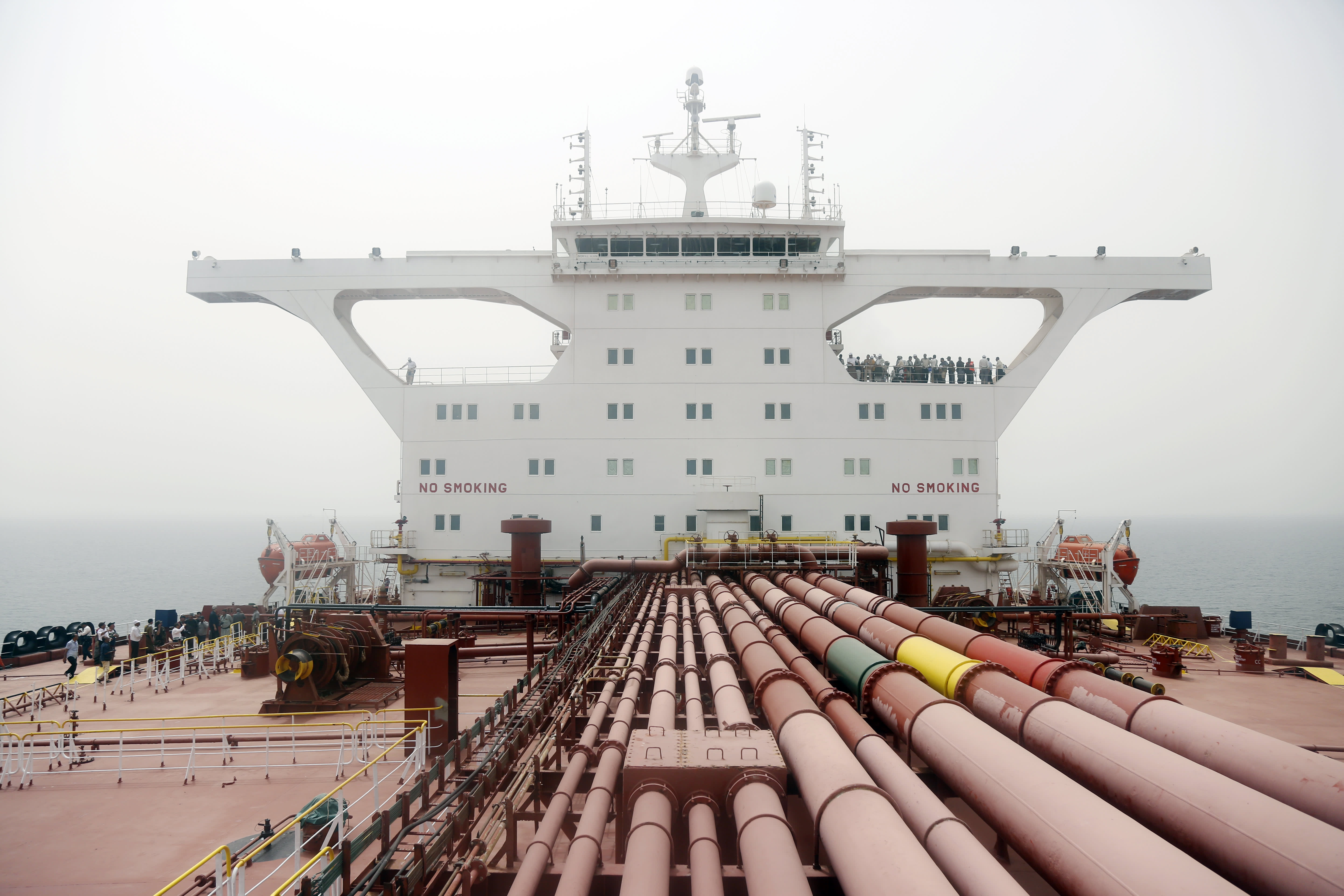
Europe is at the center of diversions because its tanker supplies are at high risk of attack.
“The decision on these transfers rests with European oil owners,” said Victor Katona, senior crude oil analyst at Kpler. “European countries are seen as complicit in the war between Israel and Hamas. They would rather go around the Cape of Good Hope than seize the opportunity across the Red Sea.”
The resulting delays in the delivery of the products – which include crude oil, diesel and liquefied natural gas products – vary depending on the commodity being transported. LNG ships travel faster than oil tankers because they are lighter and can cruise at speeds of up to 21 knots versus 12-13 knots for crude oil tankers.
Before the Red Sea disturbances, it took 24 days for a tanker to travel from Jamnagar, India, to Rotterdam, Netherlands. Sailing via the Cape of Good Hope, the duration of the voyage itself increased to 42 days. From Basra, Iraq, to Milazzo, Sicily, a journey that would have taken 17 days now takes 42 days.
Longer transits can put pressure on tanker availability, as their return journey will be loaded with product for a longer period.
“Not only are arrivals delayed, tankers have a longer route back home to refill,” Katona said. “You're looking at 90 days for one delivery. That's a very long time. The market is underestimating the impact of transportation duration.”
He said that he expects tankers in the spot market to see an increase in freight rates, and noted that in the past few days the prices of tankers carrying “clean products” such as diesel and gasoline have increased.
“Ironically, tensions in the region benefit tanker owners with longer voyages, increasing tanker utilization and thus higher freight rates,” said Andy Lipow, president of Lipow Oil Associates.
Katona warned that the conversions would be a long-term and painful event, but would boost the energy industry in the United States and Brazil. “We are seeing Europeans reshaping their purchasing patterns from companies in the Atlantic Basin without logistical constraints,” he said.
The United States is the largest supplier of diesel to the European market, as diesel prices recently reached their highest level in seven years.
According to Clarksons Securities, product tanker prices rose at the end of last week, following a decline in Red Sea activity. The Long Range 2 (LR2) tanker vessel, typically capable of carrying about 75,000 metric tons of hydrocarbon naphtha, saw earnings increase 33% week-on-week to $74,200 per day, as of Monday. Medium-haul (MR) tankers, which can typically carry 30,000 to 40,000 metric tons of gasoline or gasoil, saw profits rise 34% weekly to $42,500 per day.
“It's more expensive, but the Europeans will get it [the diesel] Katona said faster.
Europe has 90 days' worth of strategic oil reserves, so there is no need to worry about Europe running out of oil, but he added: “The new reality is that Europe will get its oil but at an insane shipping cost associated with it.”
“An upward threat looms” in the path of converted tankers
ENI's Faithful Warrior was the first tanker to start this trend when it diverted course on January 11. The tanker is currently located in the territorial waters of South Africa. Since then, Kepler has tracked a subsequent group of tankers that diverted away on their way to ports: Agitos to Rotterdam, Nissos Sikinos to Vos in France, Kimolos to Aliaga in Turkey, Odessa to Bachi Megara in Greece, and the tanker Kiniras, which has not been identified. Its final destination is yet to come, according to Katona.
Katona said, “Iraqi tankers carrying crude to Europe have begun sailing almost uniformly toward the Cape of Good Hope.” “It is interesting that there is only one tanker carrying Iraqi crude that passes through the Bab al-Mandeb Strait, and coincidentally carries the cargo to Turkey, to the same Tubras.” [refinery operator] Which witnessed the Iranian Revolutionary Guard seizing its previous shipment off the Omani coast. “So they never stopped believing in the road.”
Torm, Hafnia, Stena Bulk, Hafnia, BP, Frontline, Equinor, Euronav and Shell are among tanker operators and energy companies who have chosen to avoid the area following the latest warnings.
This offer to tankers is part of the “looming upside risk” it conveys to customers, said Kevin Bock, managing director of Clearview Energy Partners.
“Longer journeys for Middle Eastern barrels that have replaced Russian flows to Europe are delaying supply, which could be bullish in itself. And if shipping from Iraq via Suez to Europe looks too risky, so do shipments from other regional producers,” he said. Bock: “You could follow suit soon.”

“Travel specialist. Typical social media scholar. Friend of animals everywhere. Freelance zombie ninja. Twitter buff.”





More Stories
Macron rejects left-wing bid to appoint PM before Olympics
Dogs can smell human stress and make decisions accordingly, study says: NPR
Hamas and Fatah sign declaration to form future government as war rages in Gaza